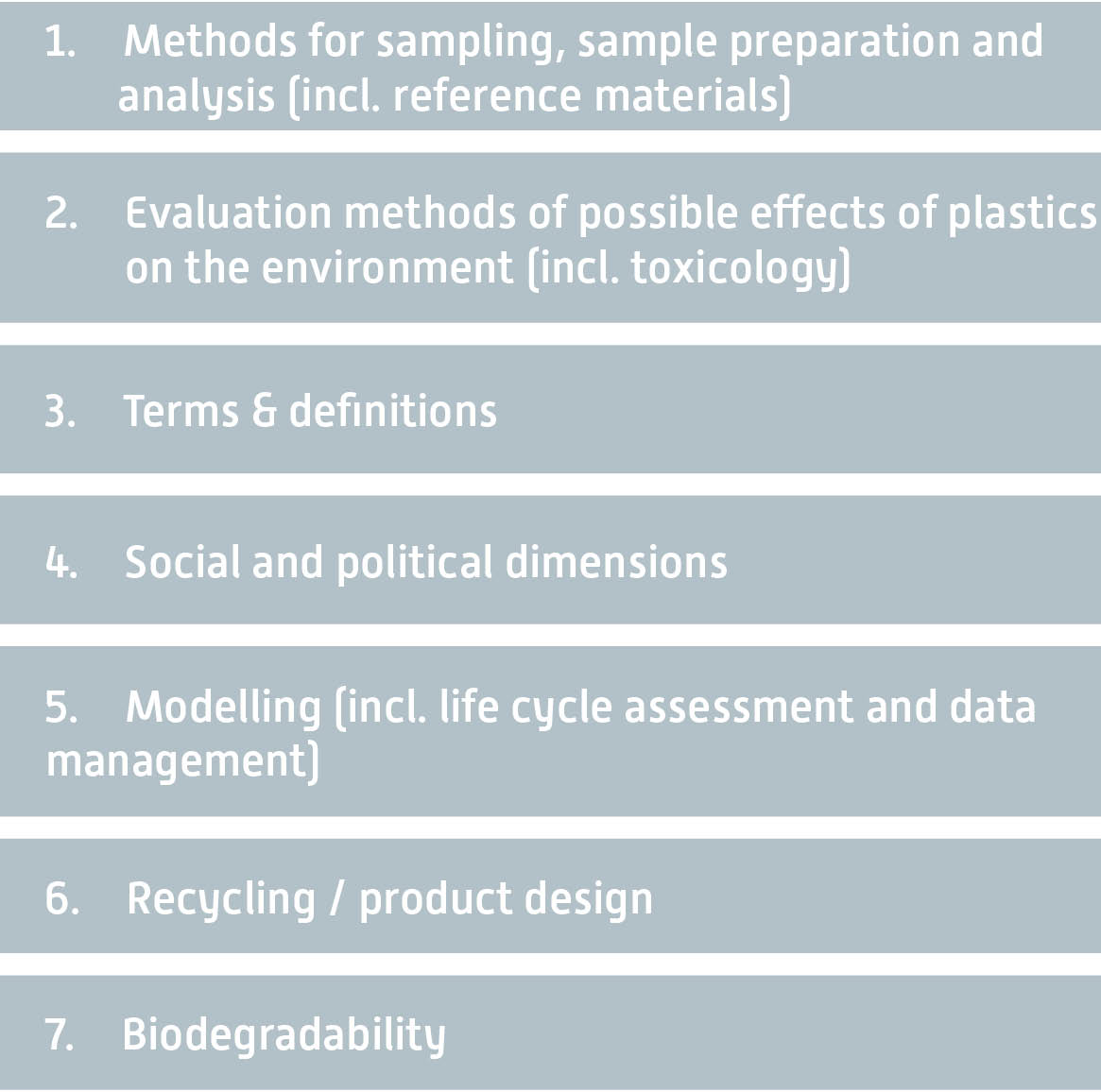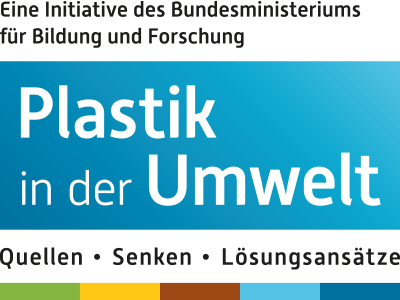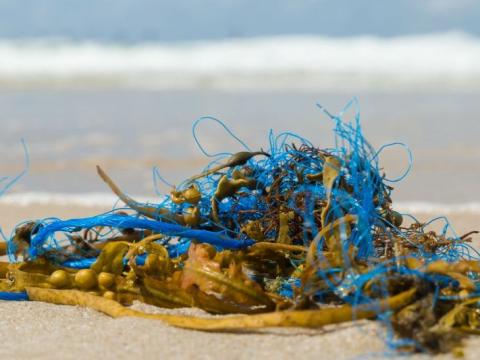Plastics in the environment are a global problem and the evidence for this is hard to miss: huge waste deposits are seen in the oceans even in remote areas of the Arctic, plastic particles are found in the stomachs of fish and seabirds, and plastics of all sizes and shapes are clearly visible on almost any beach around the world.
Despite a range of activities and approaches, our knowledge of the full extent of plastic pollution is still limited: there is not enough validated knowledge on the origins of plastics in the ocean, their behaviour in oceans, inland waters and soils, and how they could affect animals and humans.
Germany’s Federal Ministry for Education and Research (Bundesministerium für Bildung und Forschung – BMBF) addressed this issue with its research focus, an initiative called “Plastics in the Environment – Sources • Sinks • Solutions”. The BMBF thus supported the transition to a resource and environmentally friendly economy, which was also at the heart of the BMBF-framework programme ”Research for Sustainable Development” (FONA³). With this research focus, the BMBF expanded on work conducted in previous funding measures, e.g.: the international funding programme investigating microplastics in the oceans (part of JPI OCEANS), the joint research project “Microplastics in the water cycle” (MiWa) (part of the funding priority Sustainable Water Management), as well as the Social-ecological Junior Research Group PlastX working in this area.
The interdisciplinary nature of the research focus enabled a better understanding of the environmental impacts of plastic waste from river basins all the way to the oceans. The research represented a first and comprehensive scientific assessment of the problem of plastic waste and filled in existing knowledge gaps. In addition, solutions for reducing the emission of plastics into the environment were identified and implemented. For this purpose, the entire value chain of plastics, from production and use to disposal, was examined in order to identify opportunities for improvement and options for action, especially in an international context.
In the period of 2017–2022, a total of 20 joint research projects and an accompanying scientific project were funded with more than €40 million. Over 100 institutions from science, industry, civil society, and public administration were involved in what is hitherto currently the world‘s largest research focus in the field of the effects of plastic on the environment.
This general outline of the research projects shows how diverse and far-reaching the impacts of the plastic problem are and the variety of areas in research, business and society that are affected.
In order to address the various aspects in a targeted manner, approaches were needed in which research institutions cooperate with actors from business, civil society and administration. Following that, other departments and federal authorities could also be supported in developing strategies and measures for a more sustainable use of plastics. To promote the knowledge exchange and networking between the projects as well as to support the use and communication of research results, the accompanying project PlastikNet was established. Furthermore, a Steering Committee and an Advisory Board were involved in the implementation of the research focus.
The Steering Committee served the networking between the joint research projects as well as the discussion of general questions. Cross-cutting issues were defined, at which all interested joint research projects worked together in the course of the research focus, e.g. in workshops. The seven cross-cutting issues are:

In addition, joint activities were planned for the use and practical implementation of the project results and for public relations work. The Steering Committee was composed of the coordinators of all 20 joint research projects.
The Advisory Board was organised under the leadership of the BMBF and included important actors from the federal government, state governments, local authorities, industry, associations and civil society. The task of the Advisory Board was to link scientists from the research focus with stakeholders from industry, politics, society and administration as well as to disseminate the results. The Board thus served on the one hand to multiply the results, i.e. transfer them to relevant institutions and political processes, and on the other hand, to inform the research projects with developments from practice.


